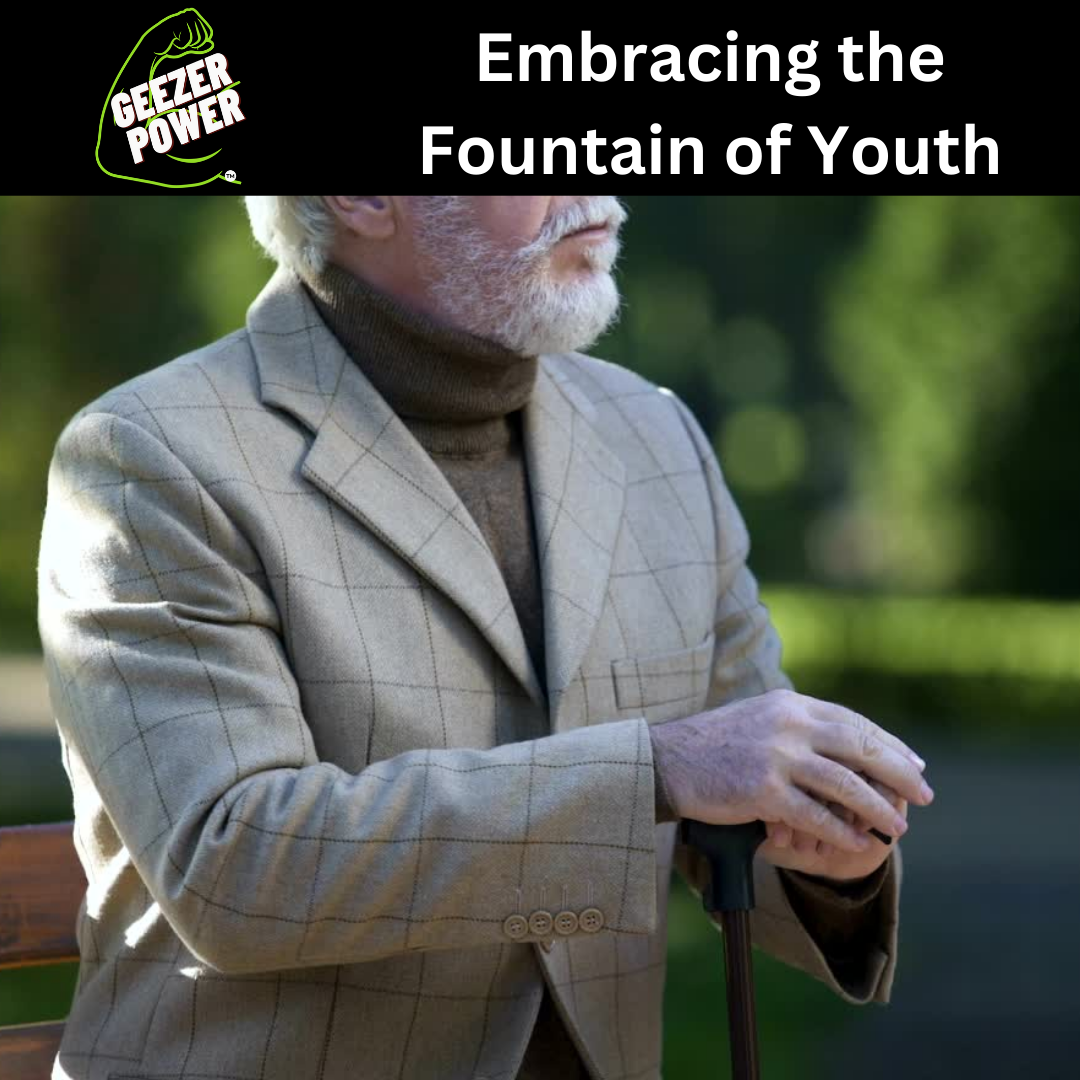
Embracing the Fountain of Youth
Embracing the Fountain of Youth: A Guide to Preventing Ageing and Embracing Vitality
Ageing, a natural process that affects us all, is often seen as an inevitable decline in vitality and health. However, with the right approach, it’s possible to slow down the ageing process and enjoy a vibrant, fulfilling life well into our golden years. In this uplifting guide, we’ll explore the science behind ageing, its various types and causes, how it starts, and how it’s interconnected with other aspects of health. We’ll also delve into preventative actions you can take to maintain youthful vitality and the myriad benefits of doing so, as well as potential complications of ageing and how to address them.
Understanding Ageing:
Ageing is a complex biological process influenced by a combination of genetic, environmental, and lifestyle factors. While some aspects of ageing are inevitable, such as chronological ageing determined by our genes, others can be influenced by our lifestyle choices and environmental exposures.
Types and Causes of Ageing Conditions:
There are several types of ageing, each with its own distinct causes and characteristics. Some common types include:
- Biological Ageing: This refers to the gradual decline in physiological function that occurs as we age. It’s influenced by factors such as cellular damage, oxidative stress, and inflammation.
- Skin Ageing: As we age, our skin loses elasticity and becomes more prone to wrinkles, sagging, and age spots. This is primarily due to a decrease in collagen production and exposure to factors such as UV radiation and pollution.
- Cognitive Ageing: Cognitive decline is a common aspect of ageing, characterized by changes in memory, reasoning, and processing speed. While some cognitive decline is normal with ageing, it can be accelerated by factors such as chronic stress, lack of mental stimulation, and unhealthy lifestyle habits.
- Musculoskeletal Ageing: Ageing also affects our musculoskeletal system, leading to a decline in muscle mass, strength, and bone density. This can increase the risk of falls, fractures, and mobility issues.
How Ageing Starts:
Ageing begins at the cellular level, with gradual changes occurring in our DNA, proteins, and other cellular components. Over time, this leads to a decline in cellular function and an accumulation of damage, resulting in the physical and cognitive changes we associate with ageing.
How Ageing Works:
At the heart of the ageing process is a phenomenon known as senescence, where cells lose their ability to divide and function properly. This is influenced by a variety of factors, including oxidative stress, inflammation, and telomere shortening. As senescent cells accumulate in the body, they contribute to tissue dysfunction and age-related diseases.
Interconnectedness of Ageing:
Ageing isn’t just confined to one aspect of our health; it affects multiple systems in the body and can contribute to a range of chronic diseases. For example, age-related changes in the immune system can increase the risk of infections and autoimmune disorders, while declines in cardiovascular function can lead to heart disease and stroke.
Related and Chronic Effects of Ageing:
Some common effects of ageing include:
- Decreased muscle mass and strength
- Reduced bone density and increased risk of fractures
- Decline in cognitive function and memory
- Changes in vision and hearing
- Increased susceptibility to chronic diseases such as heart disease, diabetes, and cancer
Preventative Actions:
While ageing is a natural process, there are steps you can take to slow down its effects and maintain youthful vitality:
- Eat a Healthy Diet: A diet rich in fruits, vegetables, whole grains, and lean proteins can provide essential nutrients and antioxidants that help protect against age-related damage.
- Stay Active: Regular exercise is crucial for maintaining muscle mass, bone density, and overall health. Aim for a combination of cardiovascular exercise, strength training, and flexibility exercises to keep your body strong and agile.
- Protect Your Skin: Wear sunscreen, avoid excessive sun exposure, and use moisturizers and skincare products that promote collagen production and protect against environmental damage.
- Stay Mentally Active: Keep your brain sharp by engaging in mentally stimulating activities such as puzzles, reading, learning new skills, and socializing with others.
- Manage Stress: Chronic stress can accelerate the ageing process, so practice stress-reducing techniques such as meditation, deep breathing, yoga, and spending time in nature.
Benefits of Preventative Actions:
Taking proactive steps to prevent ageing can have numerous benefits for your health and well-being, including:
- Increased energy and vitality
- Improved physical and cognitive function
- Enhanced mood and overall quality of life
- Reduced risk of age-related diseases
- Longer lifespan and healthier ageing process
Complications of Ageing:
While preventative actions can help slow down the ageing process, it’s important to recognize that complications can still occur, particularly in older adults. Some potential complications of ageing include:
- Increased risk of falls and fractures due to decreased mobility and balance
- Cognitive decline and dementia
- Chronic health conditions such as heart disease, diabetes, and arthritis
- Social isolation and loneliness
In conclusion, while ageing is a natural part of life, it’s not something we have to passively accept. By taking proactive steps to maintain our health and vitality, we can enjoy a vibrant, fulfilling life at any age. From eating a healthy diet and staying active to protecting our skin and managing stress, there are countless ways to embrace the fountain of youth and age gracefully. So let’s celebrate the wisdom that comes with age while embracing the vitality that comes from taking care of ourselves – because the journey of ageing is one we can navigate with grace, resilience, and joy.